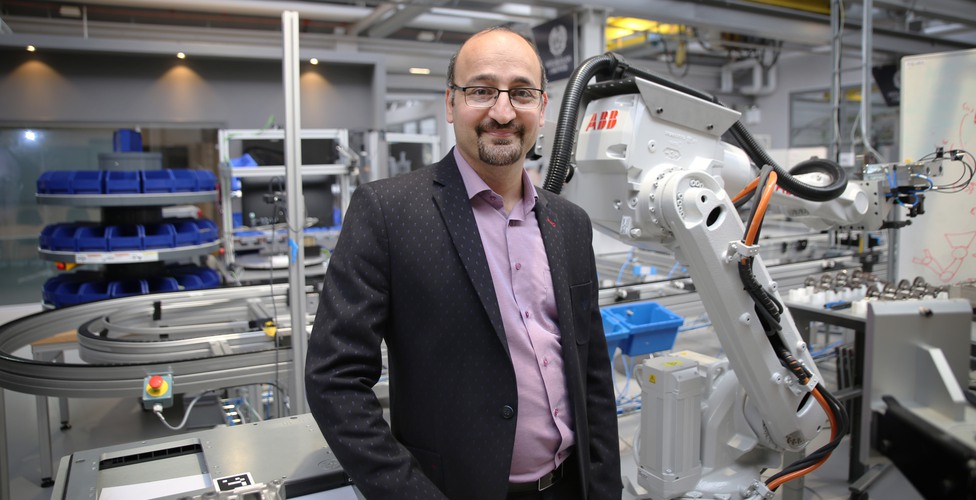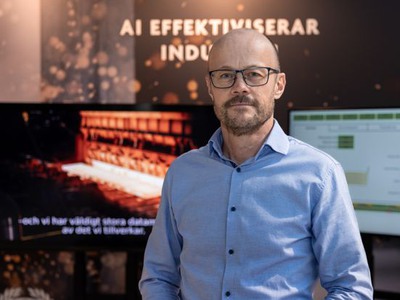Imagine a factory where everything runs smoothly—until the lights flicker, a key machine grinds to a halt, or energy prices suddenly spike. For many manufacturers, these disruptions can quickly lead to lost time, soaring costs, and pressure on employees. At the University of Skövde, researchers are working on ways to make production systems more resilient, sustainable, and people-friendly.
 Masood Fathi, Associate Professor of Production Engineering.
Masood Fathi, Associate Professor of Production Engineering.
So how can we make factories ready for the unexpected?
The answer may lie in the SMART project – Resilience-Driven Manufacturing: Developing Adaptive Solutions for Sustainable and Robust Production. Together with partners such as ABB, Volvo Penta, Xylem Water Solutions, and Daloc, researchers at the University of Skövde are exploring how factories can adapt quickly, save energy, and protect their human resources.
“With SMART, we aim not just to help factories withstand disruptions—but to do so sustainably, and always with people at the centre,” says Masood Fathi, Associate Professor of Production Engineering and leader for the project.
Three pillars of resilience
To future-proof production, SMART focuses on three areas:
- Operations – Keeping factories running smoothly even when machines break down or demand suddenly shifts.
- Energy – Smarter scheduling that matches production with variable electricity prices and green energy to cut costs and emissions.
- People – Creating safe and flexible workplaces where humans and technology support each other.
“By harnessing energy resilience, we enable production that adapts to real-time energy prices and renewable supply—cutting costs and reducing our environmental impact,” says Masood Fathi.
Value for industry
All solutions within the SMART project are developed and tested together with industrial partners, making sure they work in real production environments. The result will be a digital platform that brings together tools from all three focus areas, helping factories monitor, predict, and respond to disruptions while keeping operations stable and efficient.
For companies, resilience means fewer interruptions, smarter use of energy, and the ability to deliver on time even when conditions change. For society, it means factories that are more sustainable and workplaces that are safer.
“By combining technology, sustainability, and human needs, SMART is showing how tomorrow’s factories can be both competitive and responsible,” says Masood Fathi.
Industry and academia in collaboration
The SMART project will run from December 2025 to November 2029 and is funded by The Knowledge Foundation. Project partners are ABB, Daloc, IDC West Sweden, Volvo Penta, and Xylem Water Solutions Sweden.




